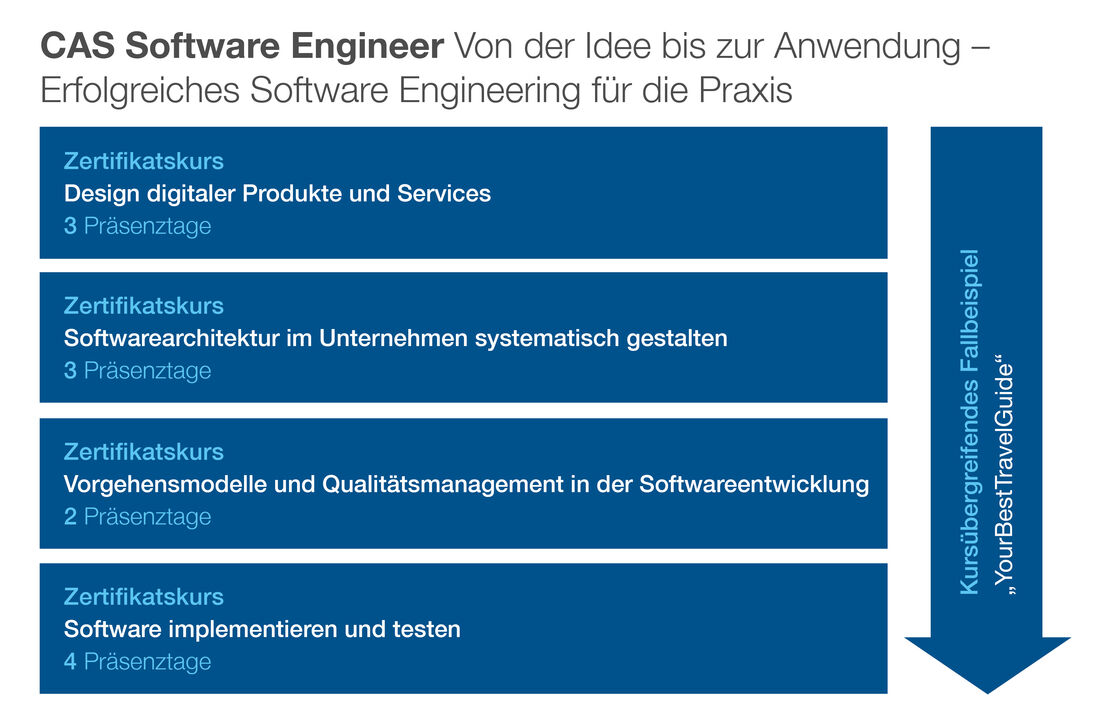"Software is eating the world" (Marc Andreessen in the Wallstreet Journal 2011). Software is ubiquitous today. Software has long supported business processes in companies. But software is also increasingly becoming an essential component of industrial systems and products and also of services. Keywords such as "Industry 4.0" and "digitization" are representative of these changes in the economy.
For companies, this trend means that the requirements for software and its development are becoming increasingly challenging: The user:s demands on the functionality and usability of software are increasing, the software must be adapted to changing conditions in ever shorter periods of time - and at the same time, software must be developed and operated in a time- and cost-efficient manner.
Ever new tools, frameworks, etc. promise to make this possible. However, the efficient development of need-oriented, reliable and long-lasting software requires, above all else, a consistently methodical approach throughout the entire development process, adapted to the respective situation. This is what this certificate course is all about.
In four consecutive certificate courses, the ONLINE CertificateProgram CAS Software Engineer provides you with the foundation courses and competencies to realize long-lasting software products or software services in a targeted and systematic manner, starting from a project idea and using appropriate methods, processes and tools.
A special feature of the certificate program is the cross-course project assignment "YourBestTravelGuide": You will learn about the development cycle from a holistic perspective by implementing all relevant processes of software development on this continuous example.





















